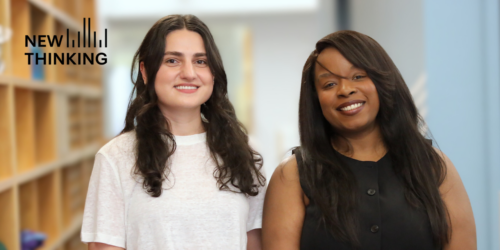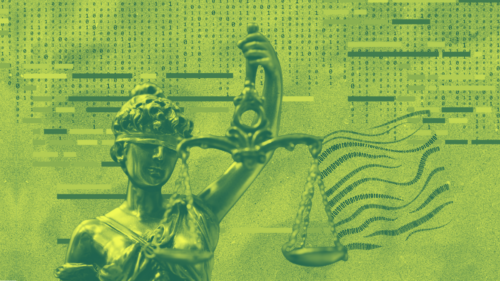Thomas Cayler has been a resident of the Times Square neighborhood for 25 years and has been involved in Midtown Community Court’s Community Impact Panels program for the last two. He talked to the Center for Court Innovation’s Carolyn Turgeon about his experiences.
How did you get involved with community impact panels?
I was asked to participate after I went through the mediation process at the Midtown Community Court—a landlord-tenant situation that was resolved favorably after a lot of hard work on both sides. The community impact panel is a very different kind of process. I’ve been happy to do it because it’s been interesting and has provided a great forum for citizens, court officers, police, and low-level offenders to sit down and talk about the community.
How does it work?
Somebody receives a summons and they go to court and are given a choice: they can either pay a fine or they can attend a community impact panel and talk about their offense with community members, court officers, and, often, a representative from the police. Usually one panel includes three to four people who’ve been summonsed. The whole process might take an hour.
First, the offender explains how he or she got the summons. Then the community members usually talk briefly about how these kinds of low-level offenses impact the community. There’s usually a court person there who talks about the court process and someone from the Police Department who talks about what the police are being asked to do in relation to that particular offense. Sometimes the offenders are upset—they feel that they shouldn’t have received the summons in the first place, that the police treated them unfairly—and no amount of discussion can persuade them otherwise. Most often, though, the offenders leave feeling genuinely enlightened.
For the most part, do you think people leave understanding each other’s perspectives in a way that’s going to impact the way they might behave in future situations?
I think so. I think that everybody leaves feeling like they got heard. And whether they were satisfied with the way they got heard or not, is an open question. But it’s important for people to feel listened to, and understood, and I think the impact panel offers that. Whether that’s enough or not is up to each individual. Occasionally you get community members on the impact panel who want to lecture these people. There was a young woman once who got a summons for having an open bottle in front of a club. She was in front of this club and she and her friends were drinking outside because the cost of the drinks inside was so high. Apparently this is a big problem with clubs, people getting liquored up before they go in, and the cops know it.
So she was with three other people and this guy she was with saw the cops coming and handed the bottle to her. When the police got there two seconds later, she had the bottle. And so at the panel, this community member was saying to her, “Your friends did this to you. You better be more careful about your friends.” And I found myself sitting there thinking, that’s for her to figure out. Personally I don’t see the community impact panels as a place for community members to lecture people. It’s not a question of how am I going to straighten these people out. This is about saying you know, having people with open bottles on the street is really a problem in this community and it creates problems for people who live here and for those who visit the neighborhood. And if you’re going to drink on the street, you can expect the police to stop you.
There was once an older cop on the panel who told us that when Mayor Giuliani first said they were going to do the community policing/broken windows stuff and take care of the small things, he just laughed and thought it was ridiculous. He’d been a cop for 10 years at that point, and felt that stopping people from urinating outside and for carrying open bottles wouldn’t do anything except create more work for the police. And he said, “Now that I’ve been doing this for 10 years, I’ll tell you that if people know that they have an open bottle, if people know that if they’re trespassing on someone’s stoop they’re going to get pulled over, they don’t do it. And it makes the neighborhood safer.”
I’ve lived in this neighborhood for 25 years and I have to say that that’s been my experience too that it’s a better neighborhood now because the police do take care of these things. It is a much better neighborhood. We have kids and they go to local schools, we use the playground, and I don’t worry about my kid on the street the way I would have 20 years ago.
March 2005

